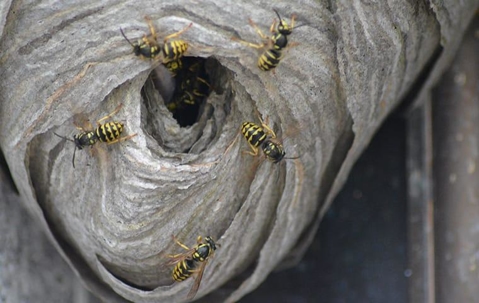Some pests are scary for people but good for the environment. Stinging insects in Weber County, commonly just called "wasps," fit right into this category. While their annoying buzzing and harmful stings are something to avoid, their role as pollinators and hunters of other destructive pests makes them invaluable to the environment. Knowing how you can stay protected means we all get to reap the rewards of wasp populations, without any risks.
What Are Wasps?
Did you know that the term wasp refers to a wide variety of flying, stinging insects? From gentle bumblebees to predatory hornets, wasps make up a range of pests from nuisances to hazards. All of the following are common invasive wasps:
- Bees: The biggest pollinators in the wasp world, honeybees and bumblebees help aid the spread of flowering plants since their furry bodies and pollen collection make them great for helping to fertilize plants.
- Yellow jackets: Often mistaken for bees, thanks to their similar yellow and black striping, yellow jackets are far more aggressive. They don't die after stinging, making them more territorial and easily provoked.
- Hornets: The scariest of the stinging wasps, hornets are often larger than other varieties, and they can sting as many times as possible. While yellow jackets and hornets aren't good pollinators, they still benefit the environment by hunting crop pests like weevils and aphids.
Problems Wasps Can Cause
It's a no-brainer that wasps can sting you, but do you know just how dangerous and pervasive their populations can be? Wasps look for areas to build nests and hives, often in overgrown foliage or the shaded areas of a structure. Once a nest forms, it can be nearly impossible to remove it safely, and you should always turn to the pros rather than risk being stung. The venomous compound found in wasp stings can cause dangerous allergic reactions, especially in vulnerable populations. It's far better to take preventative steps to keep wasps away than to try and remove a nest on your own.
Wasp Prevention For Your Yard
Staying up on pest prevention is a whole lot easier than having to deal with stinging wasps. Here are the steps you can take on your property:
Landscaping: Since wasps are looking for places to nest, overgrown and unkempt yards are far more attractive than ones that are well-trimmed. Maintain your yard, especially keeping trees and bushes trimmed to manageable lengths.
Moisture control: Water fixtures or standing puddles of water are an absolute beacon for all kinds of pests. Remove these features and ensure your lawn has proper drainage.
Professional treatments: The surest way to stay protected from invasive pests is to treat the exterior of your house with proven solutions known to keep wasps at bay. Local pest professionals can get started on this right away, providing seasonal or year-round treatments.
Be Safe, Turn To The Experts
If a wasp population has already moved onto your property, it's important to take the safe route, rather than the cheap one. While you can certainly find unproven products or treatments online or in the store, it's better to turn to professionals you can trust to get the job done right and not put yourself in harm's way. At Pest Pro, our friendly staff can inspect your property and determine whether the wasp populations have already moved in or are about to. We will provide you with more helpful prevention tips as well. If an infestation is underway, we'll get rid of it safely and completely.
Don't risk the stinging threat that wasps pose to your property, turn to Pest Pro Pest Control for complete protection.

